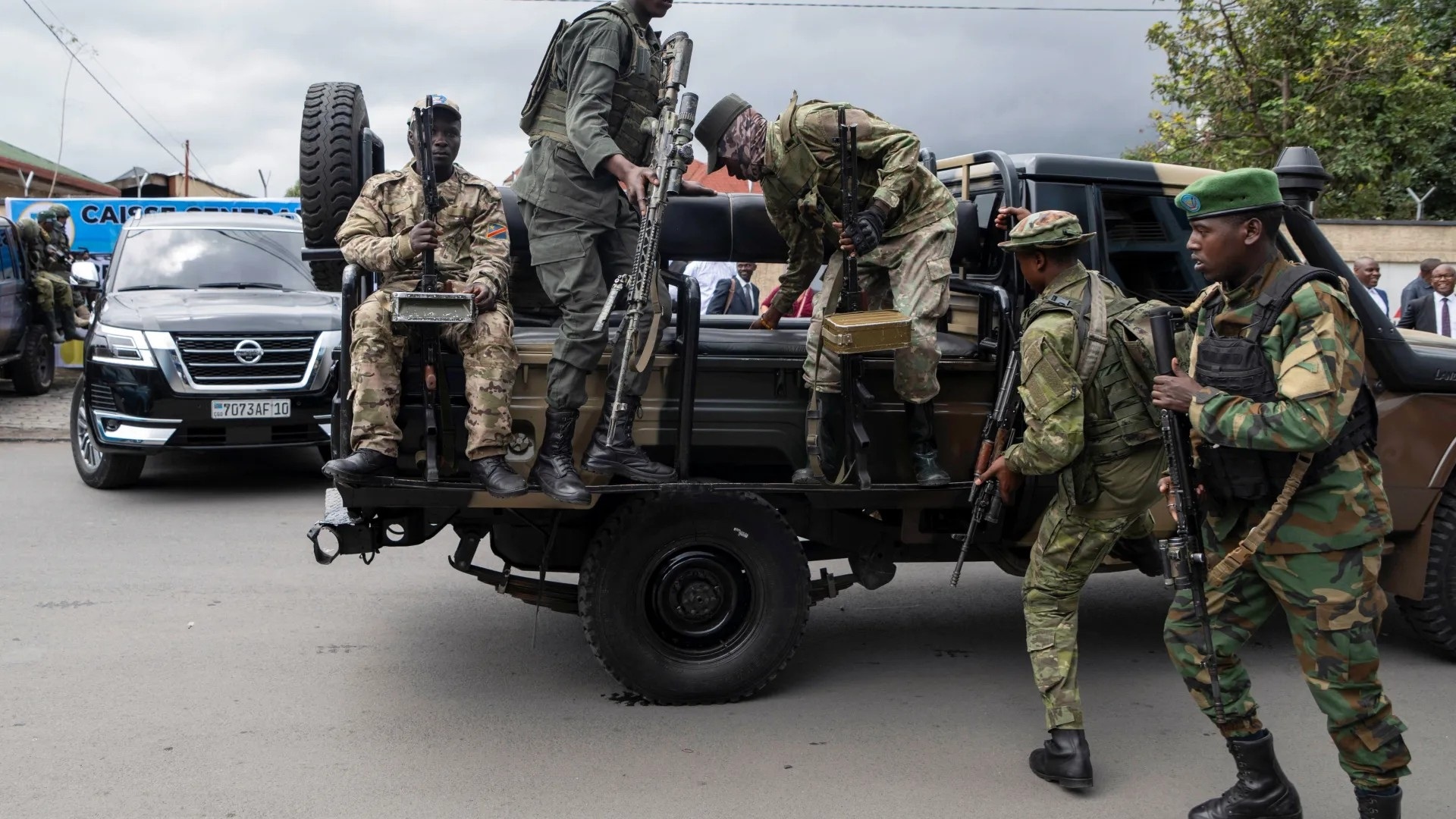The Democratic Republic of the Congo (DRC) and the M23 rebel group have taken a significant step toward ending the brutal conflict in eastern Congo by signing a declaration of principles in Doha, Qatar.
The agreement, reached on Saturday, aims to lay the foundation for peace and stability after months of deadly clashes., local media sources say.
The deal comes after escalating violence earlier this year, including a bloody M23 offensive in January that led to the capture of two major cities in the eastern DRC.
The fighting has claimed thousands of lives and forced hundreds of thousands of civilians to flee their homes, raising fears of a broader regional war.
Several neighboring countries already have troops stationed in the conflict-ridden area.
M23, primarily composed of ethnic Tutsi fighters, emerged from longstanding ethnic and political tensions that trace back to the 1994 Rwandan genocide.
The group has been accused of receiving support from Rwanda, a claim Kigali denies, insisting its military actions are aimed at countering Hutu militias tied to the genocide.
An example of such group is the Democratic Forces for the Liberation of Rwanda (FDLR).
Al Jazeera’s Alain Uaykani, reporting from Goma, described the agreement as a crucial development for people in eastern Congo.
“The situation had been extremely unstable before this declaration,” Uaykani said.
“This deal opens the door to broader discussions, including addressing the root causes of the conflict.”
M23 leaders echoed the sentiment, emphasizing that genuine trust must be built between both parties to ensure the success of peace efforts.
They urged for dialogue on deeper issues fueling the conflict, including governance, ethnic tensions, and regional interference.
The African Union (AU) welcomed the development, calling it a major breakthrough.
In a statement, AU Chairperson Mahmoud Ali Youssouf hailed the declaration as a “significant milestone” in the pursuit of lasting peace and security, not only in the DRC but across the wider Great Lakes region.
This declaration follows months of diplomatic momentum.
In March, Qatar facilitated a surprise meeting in Doha between DRC President Félix Tshisekedi and Rwandan President Paul Kagame.
That meeting resulted in a joint call for an “immediate and unconditional” ceasefire.
It also led to direct negotiations between the DRC government and M23 rebels, marking a sharp reversal of Kinshasa’s previous refusal to engage with the group, which it had labeled a terrorist organization.
In April, both parties committed to working toward a ceasefire.
The talks in Doha have since continued in a cautious but constructive atmosphere, building toward Saturday’s signed declaration.
International actors have also played a critical role in recent peace efforts.
The United States hosted a separate round of negotiations in June, where the foreign ministers of the DRC and Rwanda signed a bilateral peace agreement.
On June 27, they met with U.S. President Donald Trump at the White House.
Trump, who has shown increased interest in African diplomacy since leaving office, reportedly warned both sides of “very severe penalties, financial and otherwise,” should they breach the agreement.
The president also invited Tshisekedi and Kagame to Washington for the signing of a broader deal, which Trump’s Africa adviser, Massad Boulos, dubbed the “Washington Accord.”
Speaking on July 2, Boulos said the U.S. hoped to host the signing ceremony by the end of the month and expressed optimism that the declaration being finalized in Doha would help pave the way.
Despite the progress, trust remains fragile.
The DRC, along with the United Nations and several Western governments, continues to accuse Rwanda of arming and backing M23.
Rwanda denies the charges and insists that its security concerns are legitimate, pointing to the ongoing threat posed by Hutu militias operating from within Congolese territory.
Nonetheless, the signing of the declaration in Doha marks a hopeful shift toward de-escalation in one of Africa’s most complex and enduring conflicts.
If both sides honor their commitments, it could be the beginning of a longer peace process, one that brings an end to years of suffering for civilians caught in the crossfire.







